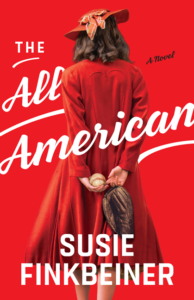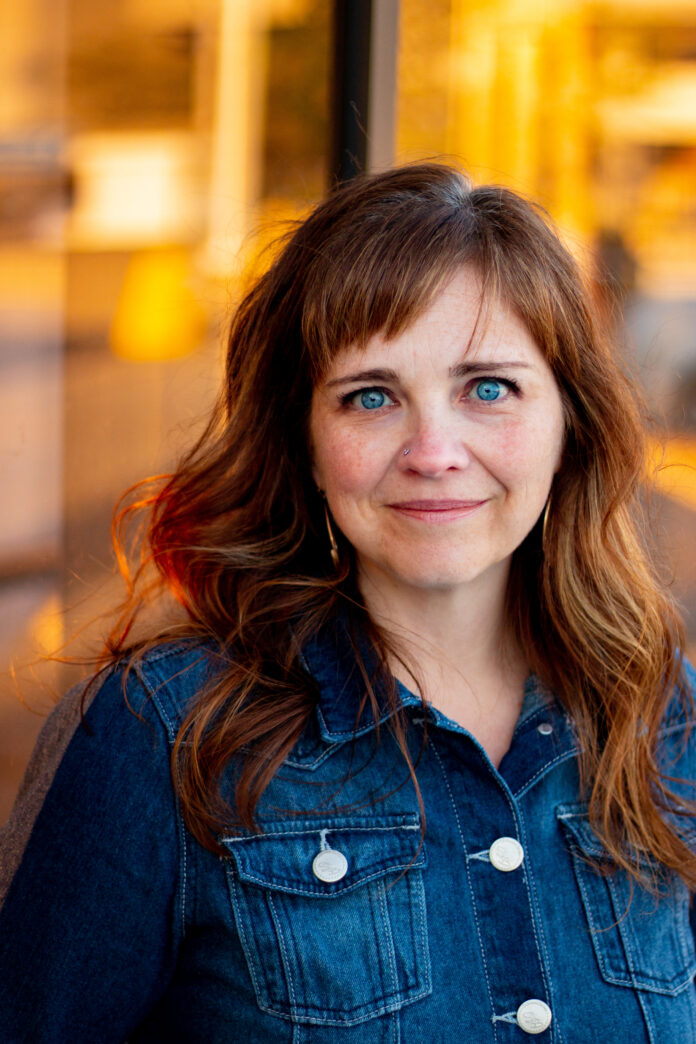Today, we welcome Susie Finkbeiner to Reader’s Entertainment. We’ll be talking about her latest release THE ALL AMERICAN.
Give us a look inside The All American.
The All-American is a coming of age story featuring sisters Bertha and Flossie as they navigate the complexity of what it means to be American in 1950s Michigan.
Why did you choose to write a book about baseball?
While I didn’t set out to write a book about baseball, I did want to write a story about a girl who plays the game. I’ve long been a fan of women’s sports—I was a student athlete from third grade through most of high school—and always had a special place in my heart for the ladies of the All-American Girls Professional Baseball League. Had it not been for their years blazing the trail in professional sports, I may not have had the opportunities to compete.
Can you please tell readers about when the All-American Girls Professional Baseball League was formed and why it was formed? How long did this league last?
The AAGPBL’s first season was 1943 and was formed to fill the gap left when many male professional baseball players enlisted in the military during the American involvement in World War II. The league folded in 1954 after several years of waning interest.
Can you please describe Bertha Harding? How is she different from other girls her age?
Bertha is sixteen and not interested in a life of domestic bliss, unlike many of the girls in her home economics class. She isn’t opposed to married life. She just wants to live a little first. She plays ball with the neighborhood boys and holds her own—if not outperforming them.
Can you describe Flossie Harding?
Flossie is a firecracker! She’s maybe a little smarter than she needs to be (and knows it), she’s read Anne of Green Gables until she has most of the story memorized, and she dreams of meeting her own Gilbert Blythe someday. But most of all she wants to fit in, to look and act and be just like all the other girls. She just can’t seem to do it.
Can you give readers a hint of what takes place that dramatically affects Bertha and Flossie’s futures?
In 1952 the House Un-American Activities Committee held trials in Detroit to try and sniff out, prosecute, and end Communism in Michigan. During these hearings, those accused of being tied to the Communist Party were encouraged to “name names,” essentially accusing others of the same in order to receive a reduced sentence in prison. William Harding— Bertha and Flossie’s father and well-known American author—was one of those accused.
Can you give readers a hint of what takes place that dramatically affects Bertha and Flossie’s futures?
In 1952 the House Un-American Activities Committee held trials in Detroit to try and sniff out, prosecute, and end Communism in Michigan. During these hearings, those accused of being tied to the Communist Party were encouraged to “name names,” essentially accusing others of the same in order to receive a reduced sentence in prison. William Harding— Bertha and Flossie’s father and well-known American author—was one of those accused.
With Bertha’s portion of the story, it’s looking at the 1950s ideal of the All-American housewife as opposed to a girl who tosses around baseballs with the boy next door. In Flossie’s bit we see the way in which the American Dream is harder to reach for some than others—impossible, even, for some—and what happens when a story doesn’t have a happy ending.
It’s really a story about finding one’s place even in the midst of disappointment and realizing the good that’s waiting there.
Most of your books are set in Michigan. What do you love most about writing books set in your home state?
I have always lived in Michigan. I have no plans to move from here. There’s just too much to love. Michigan is equal parts wild and civilized, modern and historic. There are lakes EVERYWHERE. We have a unique way of communicating and behaving toward others. We have Yoopers (for those not in Michigan, those are the folks who dwell in the Upper Peninsula, aka God’s Country). The weather provides all the drama, all the plot that any novelist could ever dream of.
But, mostly, it’s the people who call themselves Michiganders that are a joy to write. There’s just something a little extra special about the people who live in this state.
Many of your novels draw readers back to the 1950s and 1960s. Why do you love this time period so much?
I guess I’m intrigued by mid-twentieth century history. There was so much change socially, economically, artistically. So much happened. It’s a happening era, and I love learning as much about it as I can.
What do you hope readers will gain from reading The All-American?
I would love for readers to come away with a sense of hope that, no matter the ways life gets difficult or painful, there is good to be found and that God is faithful even when our hearts are broken.
How can readers connect with you?
I’m happy to connect with readers on my Facebook author page, Instagram, or TikTok. They can also head over to www.susiefinkbeiner.com to sign up for my email newsletter.
THE ALL AMERICAN releases tomorrow:
 Two sisters discover how much good there is in the world–even in the hardest of circumstances
Two sisters discover how much good there is in the world–even in the hardest of circumstances
It is 1952, and nearly all the girls 16-year-old Bertha Harding knows dream of getting married, keeping house, and raising children in the suburbs of Detroit, Michigan. Bertha dreams of baseball. She reads every story in the sports section, she plays ball with the neighborhood boys–she even writes letters to the pitcher for the Workington Sweet Peas, part of the All-American Girls Professional Baseball League.
When Bertha’s father is accused of being part of the Communist Party by the House Un-American Activities Committee, life comes crashing down on them. Disgraced and shunned, the Hardings move to a small town to start over where the only one who knows them is shy Uncle Matthew. But dreams are hard to kill, and when Bertha gets a chance to try out for the Workington Sweet Peas, she packs her bags for an adventure she’ll never forget.






